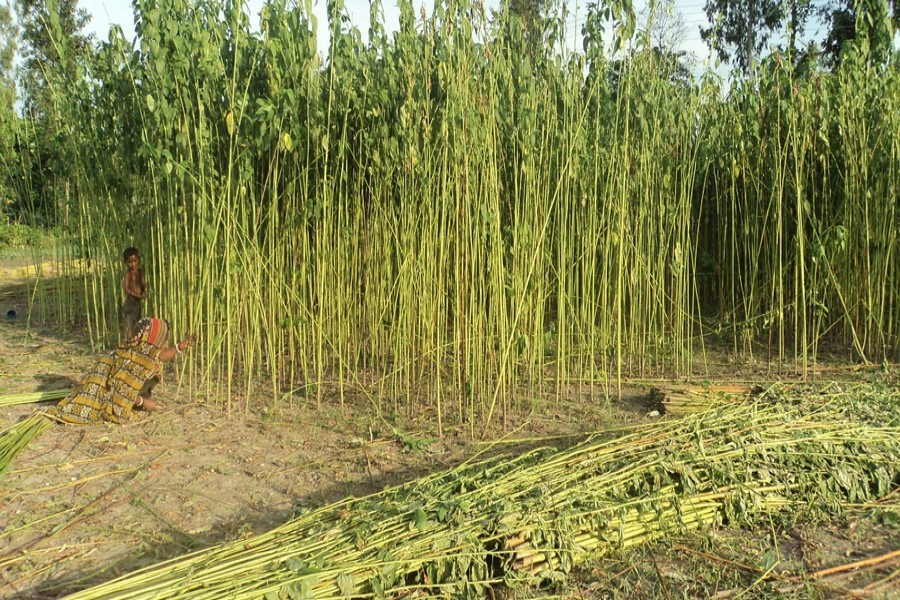Recent media reports say that agro and jute units located within the Export Processing Zones (EPZs) are not the beneficiaries of the government's cash incentive scheme that are available to similar units outside the EPZs. This, reportedly, is telling upon the competitiveness of these industries. A FE report says the Bangladesh Export Processing Zone Authority (BEPZA) has taken up the matter with the government, pleading for equal treatment in terms of cash incentive and subsidy for agro- and jute goods-producing units inside the EPZs.
There seems to be a certain degree of confusion over the eligibility of EPZ units for such incentives, and according to observers this might have been the reason for not including EPZ units as beneficiaries of the government support. The government provides cash subsidy to agro-food processing and jute goods-producing factories outside EPZs against their export performance. Some 20 per cent subsidy has been provided for exporting agro-goods (vegetable/fruits) and processed agro-items in the last fiscal year (FY). On the other hand, export of diversified jute goods enjoyed 20 per cent cash subsidy in FY 2019-20. Around 12 per cent and 7.0 per cent cash subsidies have been provided for export of jute goods and jute yarn respectively in the last fiscal.
That the BEPZA takes up the matter with the government has its own merits. There are three types of factories housed in the country's eight EPZs -- type A, type B and type C. Type A comprises factories that are 100 per cent foreign-owned, as well as those owned by non-resident Bangladeshis, type B includes factories set up under a joint venture between foreign and Bangladeshi entrepreneurs, and type C consists of 100 per cent Bangladeshi-owned enterprises. The BEPZA has sought incentives for all three types of units in conformity with those available for similar enterprises outside the EPZs. This seems to hold ground as section 4.0 of the Foreign and Private Investment (promotion and protection) Act-1980 provides for fair and equitable treatment to foreign private investment.
It is well known that units within the EPZs get a number of non-cash facilitating services from the government which are not available to the units outside. These facilities, such as port clearance and shipment among others, do help these units save a portion of their expenses and time. However, if these facilities are considered good enough to let these units be on their own, there has to be a clear decision in this regard. More importantly, there is a need to assess the outcome of the facilities as against the cash incentives provided to enterprises outside the EPZs. One has a feeling that there is a grey area here, and the authorities should try to sort it out as soon as possible. The dampening of export prospect of EPZ units, as reported, should also be looked into. In view of the government's thrust on EPZs and economic zones, there is a definite need to address the issue towards reaching a fair deal.


